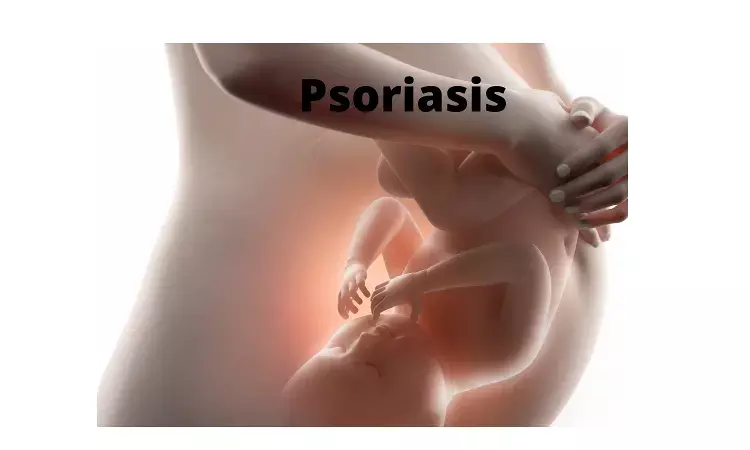- Home
- Medical news & Guidelines
- Anesthesiology
- Cardiology and CTVS
- Critical Care
- Dentistry
- Dermatology
- Diabetes and Endocrinology
- ENT
- Gastroenterology
- Medicine
- Nephrology
- Neurology
- Obstretics-Gynaecology
- Oncology
- Ophthalmology
- Orthopaedics
- Pediatrics-Neonatology
- Psychiatry
- Pulmonology
- Radiology
- Surgery
- Urology
- Laboratory Medicine
- Diet
- Nursing
- Paramedical
- Physiotherapy
- Health news
- Fact Check
- Bone Health Fact Check
- Brain Health Fact Check
- Cancer Related Fact Check
- Child Care Fact Check
- Dental and oral health fact check
- Diabetes and metabolic health fact check
- Diet and Nutrition Fact Check
- Eye and ENT Care Fact Check
- Fitness fact check
- Gut health fact check
- Heart health fact check
- Kidney health fact check
- Medical education fact check
- Men's health fact check
- Respiratory fact check
- Skin and hair care fact check
- Vaccine and Immunization fact check
- Women's health fact check
- AYUSH
- State News
- Andaman and Nicobar Islands
- Andhra Pradesh
- Arunachal Pradesh
- Assam
- Bihar
- Chandigarh
- Chattisgarh
- Dadra and Nagar Haveli
- Daman and Diu
- Delhi
- Goa
- Gujarat
- Haryana
- Himachal Pradesh
- Jammu & Kashmir
- Jharkhand
- Karnataka
- Kerala
- Ladakh
- Lakshadweep
- Madhya Pradesh
- Maharashtra
- Manipur
- Meghalaya
- Mizoram
- Nagaland
- Odisha
- Puducherry
- Punjab
- Rajasthan
- Sikkim
- Tamil Nadu
- Telangana
- Tripura
- Uttar Pradesh
- Uttrakhand
- West Bengal
- Medical Education
- Industry
Psoriasis and PsA in pregnancy have adverse maternal events but no neonatal events: Study

Psoriasis and PsA are inflammatory diseases that affect women in their reproductive years. Studies about the effects of pregnancy on psoriasis and those of psoriasis on pregnancy is limited, despite the high frequency of the disease in the general population.
A new study by Wenhui Xie and team reported that pregnant women with Psoriasis and Psoriatic Arthritis PsA have excess risk of adverse maternal events, but no adverse neonatal events. This study is published in Rheumatology journal.
The objective of the study was to investigate whether maternal psoriasis and PsA are associated with adverse pregnancy outcomes.
The study used multiple electronic databases from inception to 3 August 2020, and reference lists of selected articles. Observational studies reporting at least one pregnancy outcome in women with psoriasis or PsA with a comparator of general population or healthy subjects were included. Data were pooled by random-effects models and expressed as odds ratio (OR) and 95% CI.
The results of the study were found to be
• A total of 16 studies of pregnant women with psoriasis and/or psoriatic arthritis (46,909 patients, 53,541 pregnancies, 4,771,352 controls) were included.
• Multiple maternal adverse outcomes including cesarean delivery (OR, 1.33), preterm birth (OR, 1.32), gestational hypertension (OR, 1.30), preeclampsia/eclampsia (OR, 1.28).
• Gestational diabetes (OR, 1.19) were associated with psoriatic disease, whereas prematurity was the only neonatal adverse outcomes associated with psoriatic disease (OR 1.12 derived from only 2 studies).
• Results were similar when analyzed by psoriasis and psoriatic arthritis subgroups and the magnitude of risk estimates seems to be greater in PsA, though without statistical difference.
Xie and team concluded that "Pregnant women with psoriasis and PsA have excess risk of adverse maternal events, but not adverse neonatal events." They also stated that "Close monitoring of the mother's clinical status before and during pregnancy is decidedly required in daily practice."
For further information: https://doi.org/10.1093/rheumatology/keab357
Medical Dialogues consists of a team of passionate medical/scientific writers, led by doctors and healthcare researchers. Our team efforts to bring you updated and timely news about the important happenings of the medical and healthcare sector. Our editorial team can be reached at editorial@medicaldialogues.in.
Dr Kamal Kant Kohli-MBBS, DTCD- a chest specialist with more than 30 years of practice and a flair for writing clinical articles, Dr Kamal Kant Kohli joined Medical Dialogues as a Chief Editor of Medical News. Besides writing articles, as an editor, he proofreads and verifies all the medical content published on Medical Dialogues including those coming from journals, studies,medical conferences,guidelines etc. Email: drkohli@medicaldialogues.in. Contact no. 011-43720751


